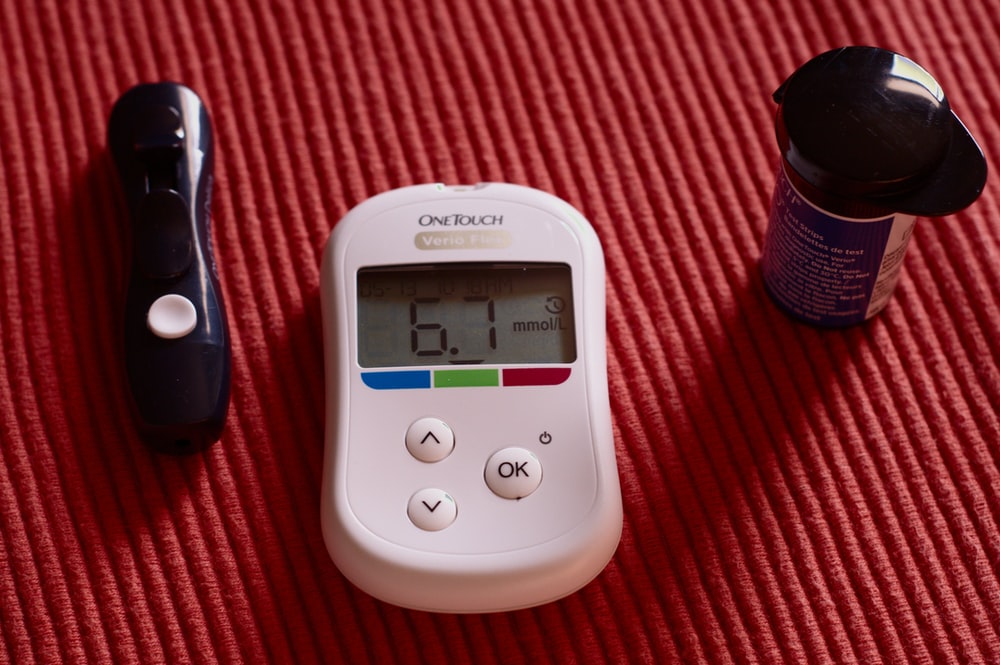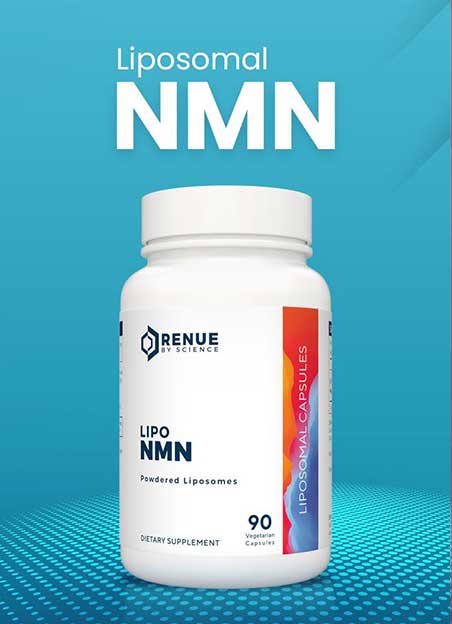

If you have any interest in different types of teas, you must have come across chamomile tea. Famous for its range of health benefits, chamomile tea contains an important nutrient known as apigenin.
What is Apigenin?
The chemical formula for apigenin is C15H10O5 and its chemical formula is 4′, 5, 7,-trihydroxyflavone. The molecular structure of apigenin is given in the figure below:

Apigenin belongs to the class of nutrients known as bioflavonoids. Bioflavonoids are polyphenolic compounds, present in almost all plants.
Apigenin has generated a lot of interest among anti-aging researchers because of its vastly beneficial bioactivities and low toxicity.
Where is it found?
The most famous plant it is associated with is chamomile, owing to the popularity of chamomile tea.
However, apigenin is found in a range of plant sources including plant-based beverages, and many citrus-based fruits such as grapefruits and oranges. Several vegetables such as wheat sprouts, tea, onions, and parsley also contain apigenin.

There are many plant-based sources that provide apigenin. Thus, people on vegetarian and fruitarian diets have significant potential to benefit from these sources.
Apigenin in Chamomile Tea
As mentioned earlier, chamomile tea contains plenty of apigenin. The question that arises here is that just how much is plenty? Generally, chamomile tea contains 0.8 percent to 1.2 percent apigenin content. However, the exact amount of apigenin varies in the specific samples of the tea.
Benefits of Apigenin
There is a range of benefits of apigenin to the body. The substance benefits various vital organs in the body such as the brain, heart, and skin.
It must be noted here that most of the research concerning apigenin is in infancy, thus using animal models, but it does shed light on the potential of the substance.
Some of those benefits have been explained below:
Antioxidant Effects
One of the most important benefits of apigenin comes in the form of its antioxidant effects. Many studies have explored the antioxidant properties of the nutrient and found it to be highly effective in eliminating free radicals.
A study published in the International Journal of Molecular Sciences noted a range of benefits of apigenin. The authors highlighted the antioxidant effects of the nutrient as the most important ones.
Due to the fact that it has significant antioxidant properties, apigenin is often used as an anti-aging product and as a boost to promote healthy skin. Its antioxidant properties allow it to be used in the promotion of skin cell growth and fight acne.
Apigenin and Anxiety
One of the most remarkable capabilities of apigenin lies in the flavonoid’s ability to cross the blood-brain barrier: the barrier separating blood circulation of body and brain. In order words, apigenin can reach the central nervous system.
This ability gives apigenin a unique opportunity to act on the central nervous system for the better. Research has shown that chamomile-extract is rich in apigenin and has been used to induce calming effects in the body.

That is the reason that some researchers are of the opinion that the treatment of Generalized Anxiety Disorder (GAD) lies in chamomile supplements
According to a 2016 research article, a clinical trial was conducted for the treatment of GAD. The participants were given 3 doses of 500 mg chamomile extract. The trial had two phases: the first phase was the open-label phase comprising 179 participants while the second one was the double-blind phase comprising 93 participants.
The participants who were given chamomile extract reported much lower anxiety levels as opposed to those who were given a placebo. Furthermore, the chamomile-extract also improved the arterial blood pressure of the participants and reduced their body weight.
Similarly, a 2012 double-blind study gave chamomile-extract with 1.2 percent apigenin to participants who had anxiety. Some of the participants also had comorbidities such as a history of depression.
The results showed that the score for the Human Depression Rating Scale was significantly lowered for the participants who were given chamomile-extract. The study confirmed the anti-depressant and anti-anxiety properties of chamomile.
Apigenin and NAD+
The latest anti-aging research has established Nicotinamide Adenine Dinucleotide (NAD+) as fundamental in the revolutionary anti-aging efforts of our times. Our body’s stores of NAD+ decline with age due to the activity of an enzyme called CD38.
Research has shown that antigenin inhibits the function of CD38. Many animal studies have shown the inhibiting activity of antigenin.
This is important because inhibiting CD38 would considerably help in the anti-aging efforts. Instead of replenishing the depleting amounts of NAD+ through precursors, preventing its decline would be vastly beneficial.
Blood Sugar Regulation
Another significant contribution of antigenin comes in the form of blood sugar regulation. Regulating blood sugar is an important process in the body that might be impaired with age or other factors such as type II diabetes.

Research has shown that antigenin has the ability to increase the quantity of insulin released in the body, thus helping the body in lowering blood sugar.
The same research article also contended that antigenin can also prevent the health complications that arise as a result of diabetes. It can help increase the amount of nitric oxide available to the cells belonging to vascular systems’ walls. This may help provide a layer of protection that comes from diabetes.
Male Fertility and Testosterone
A vital part of male fertility lies in a hormone named testosterone. The production and development of sperm are largely dependent upon testosterone. With aging, the testosterone levels of humans tend to decrease, causing a range of issues such as reduced muscle mass, erectile dysfunction, fatigue, etc.
Apigenin and other flavonoids are instrumental in delaying the aging-induced decrease in testosterone. It even has the ability to raise testosterone production in the body.
Thus, apigenin can improve male fertility and keep age-related fertility issues at bay.
Apigenin and Cancer
The main cause of cancer is the multiplication of abnormal cells that spread to form metastasized tumors. Chemotherapy is used to remove these abnormal cells but that comes with its own severe side effects. Some cancers even develop resistance to treatment.
As a result, experts are always looking for other means to treat cancer. Currently, apigenin is being looked at as a potential candidate for anti-cancer treatment. Research points towards the anti-carcinogenic properties of apigenin for the treatment of a range of carcinoma such as breast cancer, prostate cancer, etc.
While the research on the anti-cancer potential of apigenin is still going on, scientists believe that the way antigenin can stop cancer is by triggering apoptosis (death of cancer cells). Its anti-inflammatory properties may also help fight cancerous cells.
It is likely that apigenin may be used in conjunction with chemotherapy, not as a standalone drug because it is moderately effective in fighting cancer.
Other Benefits
The other potential benefits of apigenin include the following:
- Apigenin may be used in the treatment of insomnia.
- You might also benefit from the anti-inflammatory benefits of apigenin.
- It is also believed to increase brain function.
- There are also some cardiovascular benefits associated with the drug.
Liposomal Apigenin
When you are searching for apigenin supplements, you may come across a range of options. Liposome-based supplements are better than the other oral supplement options because they provide a better absorption rate and are highly bioavailable.
Liposomes are tiny sacs that enclose apigenin inside a phospholipid layer. They are designed to ensure that the active ingredient inside (in this case apigenin) are protected from the harsh acidic environment of the stomach.
Liposomes solve the bioavailability problem by preserving apigenin until it reaches the bloodstream and is delivered to the cells. Essentially, you can have a higher benefit from the same dose of apigenin.
That is why liposomal apigenin supplements are superior to the other supplement options.
Frequently Asked Questions
Below is the answer to the most frequently asked questions about apigenin.
1. Is apigenin safe to consume?
Yes, apigenin has been proven to be safe for consumption in oral supplemental form through various studies.
2. What are the possible side effects of apigenin?
There is a very low risk of toxicity from apigenin and even when the side effects appear, they are likely to be mild. Some of the possible side effects of taking apigenin include:
- Sedation
- Muscle relaxation
- Upset stomach
3. Are there any possible drug interactions I should be aware of?
If you are taking any prescription medicines, you may need to talk to your healthcare provider before taking apigenin. Common drug interactions of apigenin include the following:
- Chemotherapy drugs
- Warfarin
- Cyclosporine
4. What is the correct dosage for apigenin supplements?
The correct dosage of apigenin will depend upon a range of factors. The most important thing you should consider is the reason you are taking apigenin. Studies have used varying amounts of apigenin doses but most commonly, supplements come in up to 50 mg capsules.
If you are taking liposomal apigenin, you may benefit from smaller doses as well, owing to the higher absorption rate and significantly higher bioavailability.






